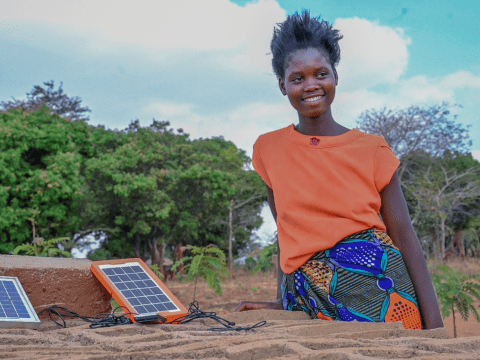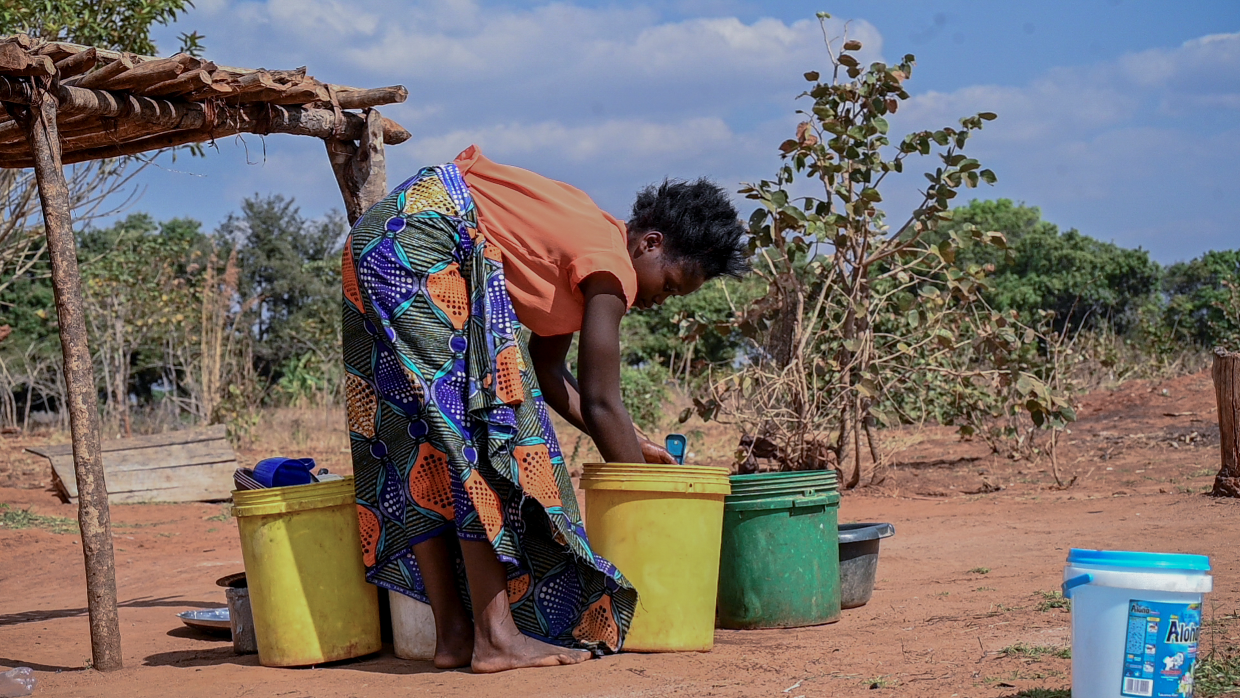"As a father, I couldn't bear to see my daughter's dreams crushed," says Chief Zumwanda

In the heart of the Zumwanda Chiefdom in Zambia, a story of resilience, transformation, and a father's care and love emerged as a source of hope. This inspiring story revolves around Memory, an 18-year-old girl who, against all odds, defied the shadows of child marriage and teenage pregnancy to pursue her dreams.
Memory's journey symbolises the impact of World Vision Zambia's UPLIFT project, which has worked tirelessly to combat child marriages and teenage pregnancies in the region. Her story, rooted in the community where the chief was once a victim of such practices, sheds light on the power of education, family, and community engagement in breaking the cycle of early unions.

Memory's story began when she was 16 and in Grade 8 at Chaomba Primary School. At that tender age, she found herself pregnant, often trapping young girls in a cycle of lost opportunities. In a heartbreaking turn of events, Memory's father sent her to live with the boy responsible for her pregnancy, who was also in Grade 8 and attended the same school.
Memory reflects on those challenging times, saying, "I thought my dreams were shattered. But little did I know that my father's love would be my guiding light."
However, hope began to shine a year later, following the engagements between World Vision Zambia and the Zumwanda Chiefdom under the UPLIFT Project. World Vision called for training six traditional leaders in Lumezi and three traditional leaders in Lundazi Districts respectively.
Among the resolutions of the meeting was for traditional leaders to lead in conducting community sensitizations against child marriages. Chief Zumwanda took a bold step to retrieve his daughter from her marital home, determined to offer her a chance at a brighter future through education.
As a father, I couldn't bear to see my daughter's dreams crushed. Education is her right, and I was determined to ensure she had that chance.
Memory recalls how this decision filled her heart with joy and renewed hope. It was an opportunity to complete her education and, in her own words, "make a good future for myself and my daughter."
She aspires to become a policewoman one day, envisioning herself as a powerful force against the issues that once threatened her dreams - child marriages and teenage pregnancies.
With determination, Memory says, "I want to be a policewoman to protect other young girls from going through what I did. Education is our weapon against these challenges."
Several factors contributed to Chief Zumwanda's decision to bring his daughter back home. Despite being sent off to live with the boy who got her pregnant, the young couple resided in the backyard of the boy's father's house. Nonetheless, Chief Zumwanda remained responsible for most of the financial needs of his daughter's household, including groceries, clothing, and other welfare necessities for the newborn child.
Chief Zumwanda emphasizes, "It is our duty as fathers and leaders to protect our children and ensure they have the opportunity to access education."
He expressed his gratitude to World Vision for their engagement, which gave him the strength and conviction to safeguard his daughter's education.
I am grateful to World Vision for the support because they gave knowledge that equipped us to fight child marriage. Let us unite against child marriages and teenage pregnancies. Our children's futures depend on it.
Memory's journey from the shadows of child marriage to the promise of education is a testament to the resilience of the human spirit and the power of collective efforts to effect change. As her story continues to inspire those around her, it serves as a reminder that, with determination and support from the community, we can break the chains of harmful traditions and offer young girls the chance to build brighter futures for themselves and their communities.